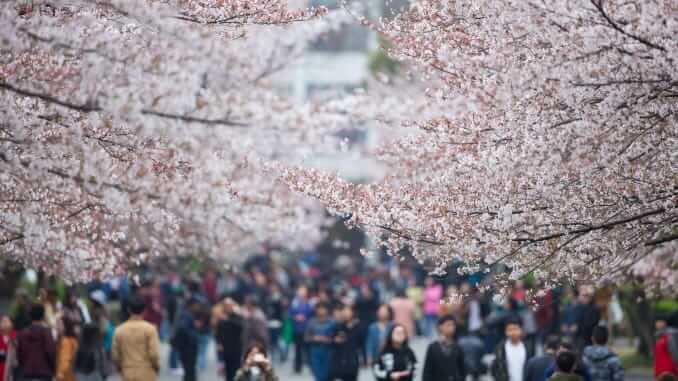
In 2019, China was the tourism market of the moment.
NB: This is an article from Net Affinity
Chinese tourists made up 220 billion in tourism revenue, (which was 20% of global tourism spend). 12.7 million Chinese tourists came to Europe every year (with Ireland only getting about 1% of those tourists).
Subscribe to our weekly newsletter and stay up to date
Then, the dreaded C happened. And interestingly, as tourism skyrockets across the globe (international tourism showed arrivals reaching 57% of pre-pandemic levels in the first seven months of 2022), the Chinese tourism market is not recovering at the same speed.
By the end of 2020, Hong Kong, which had been the largest destination for mainland Chinese and a gateway to many overseas destinations, saw Chinese tourist arrivals plummet by 94% compared to that of 2019.
Covid naturally undermined tourism demand. The IMF forecasts that global growth will slow to 2.7% this year from 3.2% in 2022, and China’s growth may bounce slightly from 3.2% back to 4.4% – yet this is still the lowest growth for global economy and the largest developing economy in the decade after the global financial crisis. It’s also relevant that the weak Chinese yuan against the dollar is severely affecting purchasing power of Chinese outbound tourists.
We must not forget what an impact staff shortages are still having on the tourism industry and businesses within it. The other thing is, much as we’d like to admit it, the pandemic has not actually come to an end completely yet. Many parts of the world are still experiencing various mutations – and we all know this kind of uncertainty is a serious deterrent when it comes to people’s confidence in planning extravagant travel.
It is thought by some experts that Chinese people are still somewhat unprepared for the sudden policy changes made by their government in early 2023 (in relation to their zero-Covid policy). Despite the fact that strict Covid policy has taken a back seat in many parts of the world, the Chinese market is more uncertain than most other markets, for one, due to a lack of confidence felt by Chinese people.
But… is there any harm in a slow revival? In travelling perhaps less often, but more mindfully?
Wolfgang Georg Arlt, founder and chief executive of COTRI, spoke recently at ITB Berlin, about the Chinese tourism market. Years of pandemic-induced lockdowns have seemingly sparked a shift away from major tourist attractions toward “more nature-orientated, more outdoor-orientated tourism,” he said. He spoke about the emergence of trends like camping, glamping and family-focused trips. It seems that many Chinese people who are holidaying are exploring their own country a little more than they used to, according to Arlt.
As well as this, the hotel group Accor estimates around three in four Chinese travellers will continue holidaying within their country. “We anticipate that 70% to 80% of the travelers will stay within China. Flight capacity is not yet at the levels of 2019,” says Karelle Lamouche, Accor’s global chief commercial officer.
It has been discussed, analysed and dissected since long before 2019, and hugely over the last couple of years. It is incredibly important however to keep hammering the point home – so much of the global travel data, patterns and habits we are seeing points towards the direction of people changing their ways, becoming a little more conscious of their surroundings, of our impact on the world, of experiences that can be planned and enjoyed and remembered.
The word “sustainability” has evolved. India has pledged to achieve carbon neutrality by 2070 for example, and many people (consumers) are thinking about how they can have as little negative impact as possible in their endeavors.
There’s a growing demand for “greener” holidays. As a hotelier, it’s important you keep this in mind – at all times. How can you communicate that you are a part of the green travel movement through your comms, your offers, your website, your activities? From the products you use to the experiences you have to offer, you need to keep yourself educated and up to date on the rise of slow travel, healthier travel, and understand that this is what so many of your guests will want, and it’s what they will be looking for – now and in the future.




